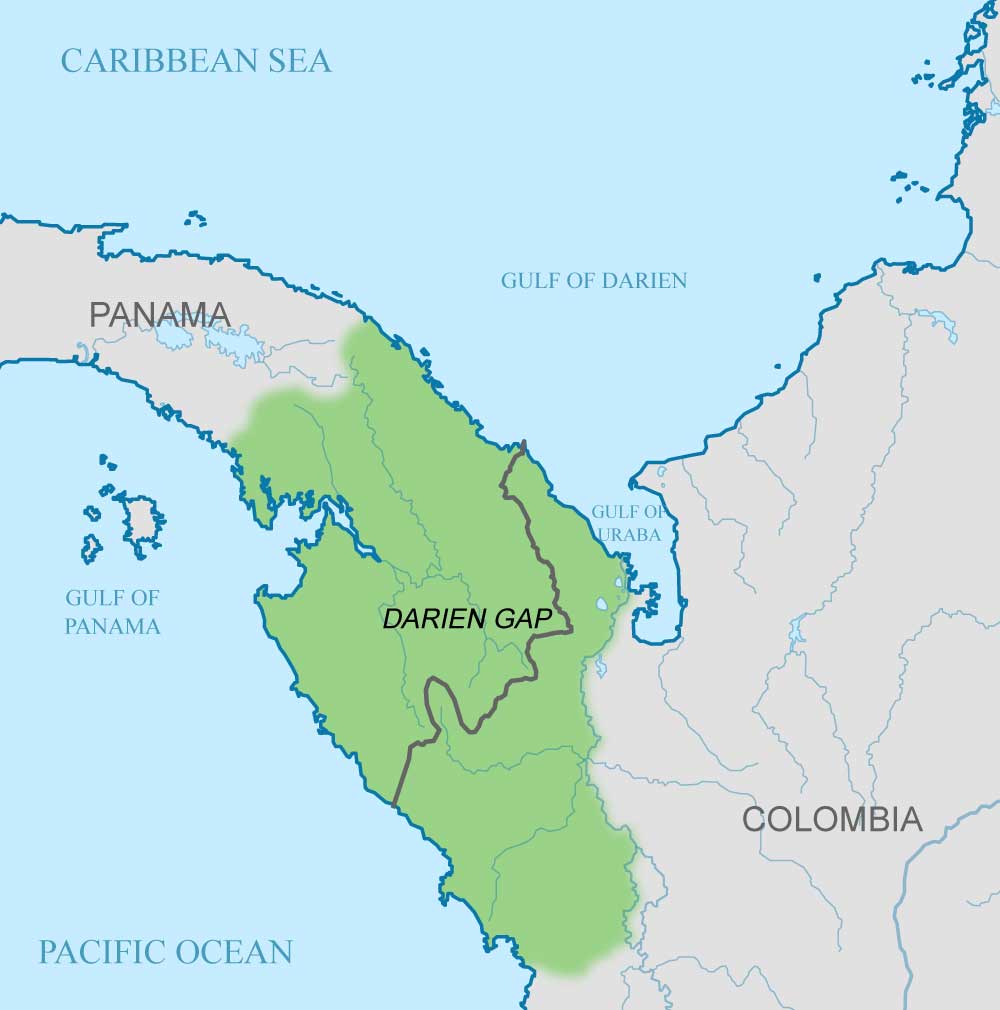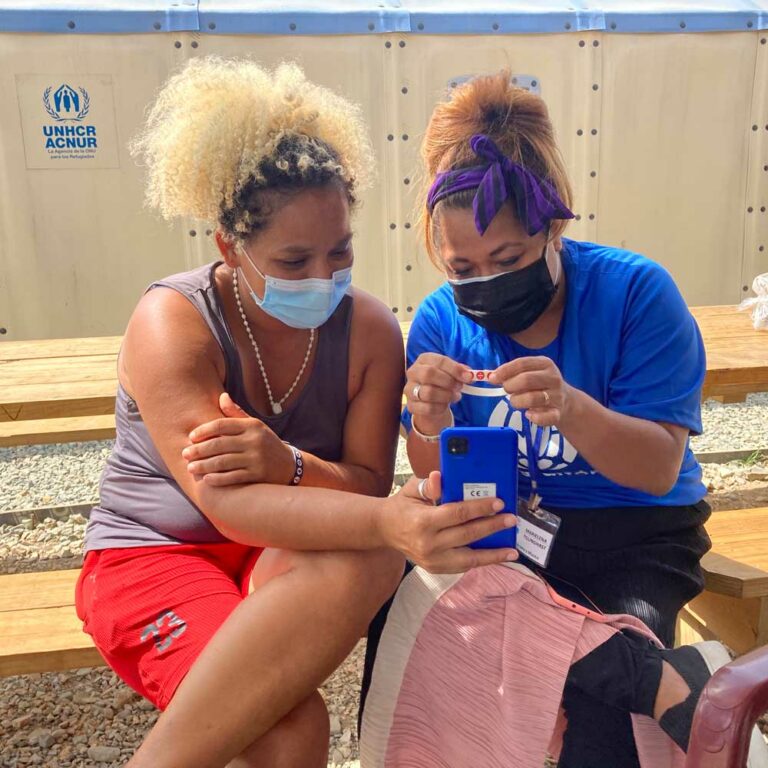Twenty-seven Christian leaders in Panama came together after the Global Forum in September 2020 to form a national expression of GACX in their country. Immediately they began looking for a project to do together. “We didn’t want to spend a whole year talking administration but not doing anything,” says missionary Todd Tillinghast. “We wanted something to do in partnership that would create momentum and unity.”
God led them to partner with FAM (Fundación de Asistencia a Migrantes), a ministry to migrants in transit. “Historically Panama has always been a point of transit,” says Gustavo Gumbs, representative of FAM. “People have always migrated between north and south, east and west, whether in colonial times or after the canal was built.”
Today is no different, although the world has changed. “[Many] migrants today fly to Argentina or Brazil and start walking north,” explains Gustavo. “then they reach a bottleneck in Panama.”
A dangerous journeyBy Milenioscuro – Own work, CC BY-SA 4.0

For migrants coming north, Panama is the only part of the journey with no roads to travel on. Instead, they must trek across the Darien Gap — a wide strip of rain forest and mountains spanning the isthmus. During the four-day crossing, they encounter crocodiles, man-eating snakes, and mosquitos carrying yellow fever or malaria. Often they run into human predators, who rob migrants of possessions and papers. Many just don’t make it. The survivors arrive back in civilization beaten down and bewildered.
And there are a lot of these migrants — up to 4,000 a month during the dry season. They come from all over the world — Africa, Asia, the Middle East. The Panamanian government set up transit camps to help them recover. FAM (a member of GACX Panama) reaches out to these migrants and shows them God’s love.
Leaders of GACX Panama felt the body of Christ could rally around this need: helping FAM have a more comprehensive outreach than they could do alone. Twelve groups came together and began raising funds from Panamanian churches. They planned a holistic project, not only showing the “JESUS” film and passing out Bibles (including Arabic, Farsi, Hindi, Urdu, Spanish and English versions) but also distributing food, clothing, toiletries, and medical supplies.
Praying through the difficulties
But challenges arose. Managing an alliance was a new concept and not always smooth sailing. “Learning to work together takes effort,” says Marielena Tillinghast. “There was some friction along the way, but we worked it out. And this is the point of GACX, learning how to leave our labels at the door.”
Furthermore, getting permission to enter the camps was complicated, requiring permission from four different government entities. Transit camp authorities wanted them to drop supplies off at the gate, rather than actually coming in.

As late as the day before the project they were still refused permission to enter. But hundreds of people across the country were praying that God would open the doors, and on the morning of February 27 dozens of people filled cars and buses and drove to the transit camp in the village of Nicanor. All by faith. And God answered. The commander of the camp welcomed them with open arms and invited them inside.
As the team looked at the rows and rows of white United Nations tents, their hearts went out to the migrants. Some teams set up aid distribution centers, others broke out Bibles and tracts, while still others began doing drama or music.
Jonathan Samudio, director of Family Life Panama, began talking to a man, Jairo, from one of the government teams. Jairo soon confessed that he had been separated from the Lord for six years and wanted to be reconciled to God. With tears in his eyes, Jairo prayed and turned back to the Lord.
Meanwhile, Marielena had been singing with the music group, dancing and generally cheering up people. When she sat to eat her lunch, she gave some of her chips to a nearby woman. It turned out that Mitzi was fleeing Venezuela and hoped to find a better life in another country. Marielena used her bracelet with “The Four” (a gospel presentation using four symbols to represent four elements of the gospel), to explain that a truly better life comes from knowing Jesus, and Mitzi committed her life to Christ.
A Facebook journey becomes a gospel opporunity
Then Mitzi sprang a surprise. “I’ve been documenting my trip through the jungle on Facebook Live,” she said. “And I have 4,000 followers. Could you share with them what you just told me?”

Suddenly Marielena found herself looking at a mobile phone and talking to Mitzi’s followers via Facebook Live! “I just met Mitzi,” she said, “and I shared with her these four symbols. I’d like to share them with you as well.”
Marielena explained the gospel then invited listeners to pray and ask Jesus into their lives. “I told Mitzi I would like to accompany her not only on her physical journey, by Facebook Live, but also on her spiritual journey. If anybody listening would like to know God better, you can join us.”
About 30 people signed up, and Marielena started a What’s App group the very next day. “I’m going to share the film Magdalena with them,” she says, “and begin discipling them using the three-third’s process. Mitzi is a Person of Peace.”
The impact of partnership
By the end of the day, the camp commander was overflowing with appreciation. “You are different from other groups,” he said. “Most groups just drop stuff off, take a few pictures, and leave. But we saw you engaging with the people, singing, dancing, doing piñatas and games with the kids. Thank you so much!”
Panama is a small country, and there is a lot of opportunity for redundancy. So instead of competing, we say, ‘How can we help?’ Or ‘How can we do things in a more effective way?’
Todd Tillinghast
“This coalition is making a difference in pulling together different sectors of the church,” says Gustavo, reflecting on the impact of GACX Panama.
“The transit camp project has helped GACX create greater unity,” adds Todd. “We now have maybe 4 organizations and 6 churches committed to GACX [Panama], which helps us know what others are doing. Panama is a small country, and there is a lot of opportunity for redundancy. So instead of competing, we say, ‘How can we help?’ Or ‘How can we do things in a more effective way?’ This is just the beginning!4








